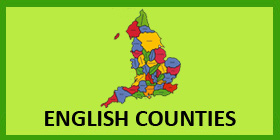




Back to the Music Makes Pictures Home Page

Don't forget we want you to be part of this and you can read what you need to do
here.
RICHARD'S CHOICES
Choice 1 - Whose Garden Was This?
Choice 2 - The Living Years
Choice 3 - The Children Are Listening
Choice 4 - Streets of London
Choice 5 - Don't Laugh At Me
Choice 6 - The Flower That Shattered The Stone
Choice 7 - Life Is What You Make Of It
Choice 8 - Sweet Survivor
Choice 9 - Children One and All
Choice 10 - Hold On To Your Dream
Choice 11 - Make It Happen - Peace by Piece
Choice 12 - Forever Young
Choice 13 - Poems, Prayers and Promises
Choice 14 - Molly's Song
The first Earth Day took place on April 22nd 1970 and twenty million Americans demonstrated in different U.S. Cities. At midnight,
an American folk singer, Tom Paxton, sang a song he wrote especially for the day. Listen to the words carefully. It imagines a world where we
have effectively destroyed nature and all we once knew is gone. The singer has heard about it but......was it really true.
Earth Day is celebrated every year now all around the globe. Just like Earth Day, Greta Thunberg's "School Strike for Climate"
outside the Swedish parliament brought greater awareness. Millions of young people across the world joined her Fridays For Future strikes.
My generation have blah, blah, blahed for too long. Do we want our legacy to be the world imagined in the song. Just a little personal note
here. When I was young most homes had front gardens with lawns and flowers and shrubs. They looked lovely if you walked by.
Do you really like concrete? Did they really have gardens?
![]() Back to the top
Back to the top
![]()
One of the reasons for creating this section is to show that we can all interpret things in a different way. This is my interpretation of this song but I see it in a different way as I have got older, from a different view point
"The Living Years" was written in 1988 by BA Robertson and Mike Rutherford and recorded by Mike's group, called Mike and the Mechanics. Rutherford said about the song that they had recently lost their fathers and they looked at how attitudes had changed. Around the two world wars, boys wanted to be like their fathers but then it all changed and boys wanted to be completely different.
The song portrays the generation gap and how it became difficult to talk to your parents. It says this in each verse. The chorus, beginning "say it loud" looks at the situation when the parent dies. It is then too late to mend any rift. I particularly like the lines "we open up a quarrel between the present and the past, we only sacrifice the future....."
When I first heard the song I was the young man trying to be different. Now I'm the old guy, the father. I was lucky with my father. He didn't just hear, he listened. He didn't understand me but he accepted me. He didn't like my long hair but only ever suggested I should have it cut. It never built a gap between us. I even wrote him a song too after he died. Nevertheless I realised after he died that there was so much we hadn't talked about, so little that I really knew of him. Talk between generations is precious. We can learn so much from each other.
While you can try to protect young children from things, it is more that adult behaviour should change. If adults criticise the behaviour of children, then those adults must share most of the blame. If you know someone is violent you wouldn't want children or be near that. Yet angry words can have the same effect, emotionally and psychologically. Don't surround your child with that either, if you can avoid it.
Peter Yarrow, who wrote the song, was so worried about the effects that these things can have on young people that he set up something called Operation Respect with his daughter. Part of their reason for that was that they heard a song which you will too next week. Listen to this one and, if you're an adult, think about the effects you may be having.
Winter can be a lonely time for some people. I live alone but alone doesn't necessarily translate to lonely. I think, as you grow old, you must expect that friends will be fewer. I know I am lucky. I am pretty fit, I have my creative work I do with Molly on this project and I can read or watch television, not that likely though.
The first ten years of my working life were spent in an office in the City of London. I would sometimes stay late in town and on my way home would see the homeless and the poor, often sitting outside a train station. They always had my sympathy, the odd coin finding its way from my hand to an old battered cap on the pavement. Normally we do not become homeless on purpose nor do we set out to be poor. It is a cruel fate that life can toss at us.
If you have been in London, or any other big city, at night you will know the characters in this song. It is beautifully evocative. The man taking an hour or so to drink the one cup of tea he can afford, the old lady carrying her home in 2 carrier bags and the old soldier with his memory fading as much as his medals are sights I have certainly seen. And the song reminds you that, however bad you may feel, someone else is most likely feeling worse.
NOTE: When you make your choices later this year you can, like I did here, make your own recording of the song you have chosen. Seven years down the road, arthritic fingers no longer allow guitar playing but I am, as Molly, who also plays guitar and ukulele amongst other things, knows considering a zither; when I win the lottery of course.
An apology. At the end of choice 3, I told you I would let you hear the song that inspired the late Peter Yarrow to set up Operation Respect, which is a programme designed to build a safer, more respectful, bully-free environment for children. There seems to be far more bullying, unfriendly behaviour than when I was young. Much of the reason for this, I think, is that is far easier to do and the internet and social media are much to blame for this. If someone wanted to be unpleasant to me then, sadly, they could but they couldn't tell the whole world.
Young people need to know that making fun of others in a nasty, spiteful way is wrong, harmful and cruel. They need to learn that bullying is wrong and only done by cowards. This song says that. It asks you not to laugh at someone for something about them that you probably don't understand. The child with glasses didn't choose to have bad eyesight; the man who is homeless didn't choose to be.
But, to me, the most important lines are the ones that say "I'm fat, I'm thin, I'm short, I'm tall, I'm deaf, I'm blind, hey, aren't we all"? We are all different and we should celebrate that fact. There is no perfect shape to be but there is a perfect way to be, a perfect personality to possess.
And let's not be deaf or blind to the feelings of others.
Reading Molly's blog last night I was once again moved by her love of nature and the way that she aligns much of her life to it. Her use of the phrase "mother earth" immediately reminded me of a song I heard back in 1992, just after one of my children was born, and which instantly appealed to me.
This song, which has the "earth is our mother" lyric in the first line first fascinated me by its title. How can a gentle flower shatter a stone but over time I have come to think that the meaning is actually very simple. Even that which appears weak can be amazingly strong. The song also talks about the freedom of nature in the lines "the river runs freely, the mountain does rise" and then emphasises how we must use all our senses in nature by adding "let me touch with my finger, see with my eyes" and we can also hear, taste and smell nature.
Sometimes people will view the word pagan in a poor light but surely to be guided by and celebrate with such a powerful element as nature cannot be looked at in that way. We need to live in harmony with nature and it is in the hearts of the children that a pure love for the world around does grow. I witnessed it so much at Molly's forest school and want to help her foster that pure love through our work.
We worry about the mental health of our children. We then put them through an education system designed to label those who do not achieve purely arbitrary standards as failures. Instead of worrying what grades they may have, we should be instilling them with the resilience to cope with whatever life may throw at them.
Life is not, and for most of us will never be, spent on the top of a roller coaster. It will be up and down. This is what we should be showing young people and this song says exactly how I feel you should live life. Earlier this week, in a text, Molly said I should be really proud to have endured life so long. I wrote back that I haven't endured it, I've fought it. I may not always win but I will never, ever give up. This is what we should make young people understand.
It is for you to make the most of whatever may happen or have happened because life is short and there is no way you can borrow extra time. You have today and tomorrow, no more, no less.
Listen to the words and make the most of your life. Life is what you make of it, what you take from it, what you do with it. You will be down sometimes but so is everyone. It's a normal, natural feeling. Find support, that special friend, and go for it. Every day you live is your victory.
Unless you shut your self out from reality then the longer you live the more you must learn. We all should start with dreams and, as time goes on, have to readjust those dreams. What we hoped would happen didn't and so we must approach those dreams in a different way, from a different direction
The important thing is never to lose that dream, to somehow be able to survive and, as the song says, carry on. There have been many times when things have gone wrong in my life. For some twenty five years I carried the lyrics to this song around with me. It was there to look at in low times and remember what I wanted to do, how I wanted to live, even how I wanted our world to be.
And, yes, people who I grew up with, who I thought had the same dreams, have turned from believers to cynics and that is where the most important lines come. "Then you see someone too young to know the difference, and a veil of isolation in their eyes, and inside you know you've got to leave them something, or the hope for something better slowly dies." I want to show the younger generation that we can hold to our dreams, we can carry on, we can survive. If you're lucky enough to find a younger person that you can help hold on to their dreams then the struggle is most certainly worth any cost. Believe me.
Molly and I frequently say that every child is different, learns differently, develops differently. You can't always see this but it's true. However there are more tangible differences that can be seen. We do not all grow up in the same environment let alone the same culture. Each parent, or person who raises a child, is also different.
This song examines those differences. Each couplet makes a comparison of life.
"Some of us live in big white houses
Some of us live in small"
or
"Some of us learn our lessons poorly
Some of us learn them well"
The thing is at the end, at night, in darkness, we're all much the same. We are those children.
The writer, Rod McKuen, was a poet and songwriter who had experienced many hardships in his early life. I discovered him in the late nineteen sixties and I could relate to many things he wrote. This song is one of those. I believe that whatever your background you are no better or worse than anyone else. We have a few quotes from Mckuen on the ones which appear across our front page. Two relate to the sentiment in this song and they are "Success is not in what you have but who you are" and "We ought to be celebrating our differences not our sameness". Think on that and listen to the song and then be proud to be who you are.
One of the most important qualities to possess in life is, in my opinion, to have a dream, something you want to achieve, a goal but you must temper that desire to follow your dream with a degree of realism. Sometimes you will not achieve it, so move on to a new dream, but always, always, have a dream.
Many years ago I heard an interview with the late Donald Campbell, one time holder of both the land speed world record and the fastest man on water. In it I think I remember he said that the worst thing in life was to achieve your ambition because what could you do next. At the time, I was 13, I thought that was true.
Now, as frequently happens as we age, I think differently. I've achieved many ambitions and failed with many others. But once I have achieved or failed at one, I just set another. Success or failure are treated the same. Unfortunately I have a bad habit of setting others while still achieving one but, hey, life's fun.
This song expresses my opinion about having that dream but, apart from the sentiments in the song, I love the sound of young voices singing. The late Judith Durham who wrote and sings the song has one of the purest voices I have ever heard. There is one other voice which equals hers and you will discover that in a fortnight.
I told you last week how I love the sound of children's voices singing. In 2003 I was working in Poland on a global educational project. The idea was to get children from around the world to tell others about their way of life. I believed that the more knowledge we have about other people, the more understanding there is and with more understanding there would be greater tolerance.
I was looking for a song that would convey this thought. It had to include all generations and mention all the six inhabited continents. I spent some time looking. Then, one morning in the shower, words started coming to me and a couple of hours later I'd written a song. In my head I had put my own tune to it too.
I was put in touch with an incredible young man at a local music school and a week later we had a fully orchestrated melody. Next we got some voices to show the three different generations and, hey presto or the Polish equivalent, we had a complete song. We then recorded it at a local studio. A few months later it formed the finale to a concert we arranged in Poland to explain our work. The sight of the young kids who sang the first verse on stage, so smartly dressed, singing in not their mother tongue will stay with me forever. So this week I'm saying please listen to my words and maybe we can make it happen.
NOTE: Cheating because this takes me over 250 words but not one person in that orchestra who provided the whole backing was aged over 18.
Two weeks ago I said you would discover another singer who has a voice which I think is so pure and here she is: Joan Baez. She began singing in the folk song/protest song boom of the early sixties and, indeed, can be said to have helped start the career of the writer of this song, one Bob Dylan. Since then Joan Baez has campaigned long and hard for social justice and peace.
I first heard the song many years ago, Dylan apparently wrote it in 1973, and I was surprised that a man who I had usually associated with angry protest songs could write one which I considered so beautiful. Being young is the most fantastic part of our lives as we discover so much, see so much for the first time, that it is a wonderful sentiment if we can somehow stay like that as our orbits around the sun increase. However, we who orbited so many times, have a responsibility to make the experiences the younger ones have as beautiful and awesome as we can. We cannot remove the bad things in our world but we can highlight the good and wonderful.
This version was recorded live at a 75th birthday celebration concert for Joan Baez nine years ago. I have now reached that 75th year and I think dedicating this song to someone whose life is just starting out would be most appropriate. And although you don't know why, this is a wonderful piece of timing.
My penultimate choice is this song which epitomises my view on life now and amazingly, in my eyes, Denver wrote it well before his 30th birthday. I frequently think about my life's times, all the things I've done and how it has been and I can assure you that I will positively hate the time when it ends. I have never been afraid of dying; I am afraid of being dead because I truly love life, the good and the bad, the happy and the sad.
This song reflects on a life lived, relationships experienced and how much it has been enjoyed. As you grow old, days do pass more quickly and changes can frighten you but the lovely bit about growing old is you now know so much; the bad bit is that often you have so little time to put what you know into practice. To me the most beautiful thing is for an older person to be able to share what they know, have felt and experienced with someone younger but it is extremely rare to find a someone who has a similar soul, spirit and attitude that you have, to make good use of it.
"Though my life's been good to me, there's still so much to do, so many things my mind has never known". Trust me, my mind is knowing something new every day. And watching the sun go down is only surpassed by seeing it rise again.
The whole purpose of this section is to get people to listen to the words of a song. The title, "Music Makes Pictures" was chosen for a reason. We live in a frighteningly visual world and visualality, to a degree, takes away imagination. Once you can see what something looks like, or what someone else thinks it looks like, there is no need to imagine it.
I am not saying visualality is wrong but, in the immortal words of my mother, "everything in moderation". I think it is beautiful to read a book and imagine the characters, the settings. The same is true of a song that somebody has written. Certain songs make you think but maybe not how the writer would think. When John Denver wrote "Annie's Song" (no mention of Annie in the words) did he and I have the same view of a night in the forest, a walk in the rain. Probably not but his words made me think.
This song has been in my head and parts of it on various bits of paper since 1999. Then, when I started working with Molly (no mention of Molly in the words) I had my inspiration. The sentiments meant even more and here it is. Children's learning as we believe it should be and struggling to change the world but not alone. I'd describe it as a song in progress. Annie Martell Denver inspired Annie's song. No further comment needed.

